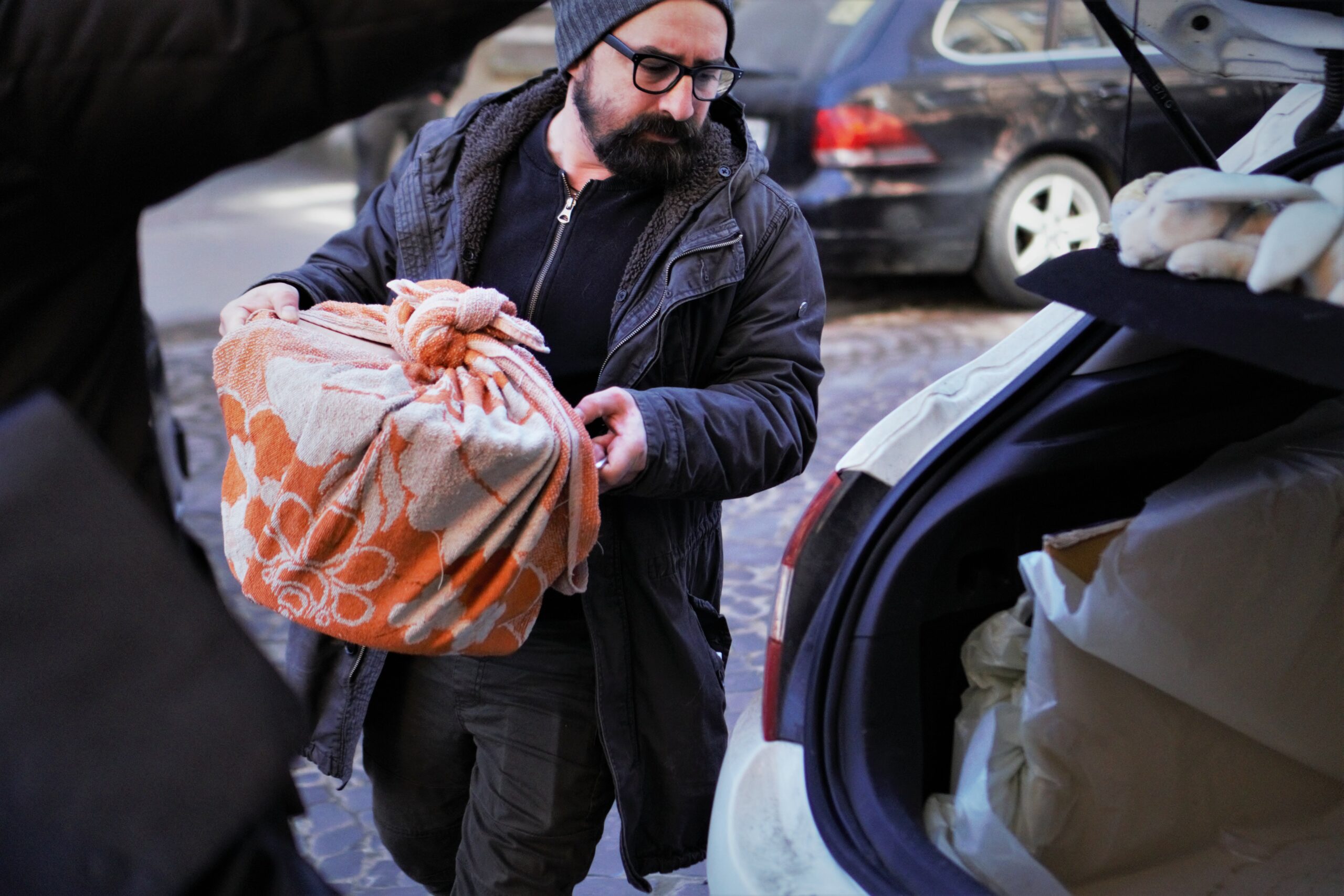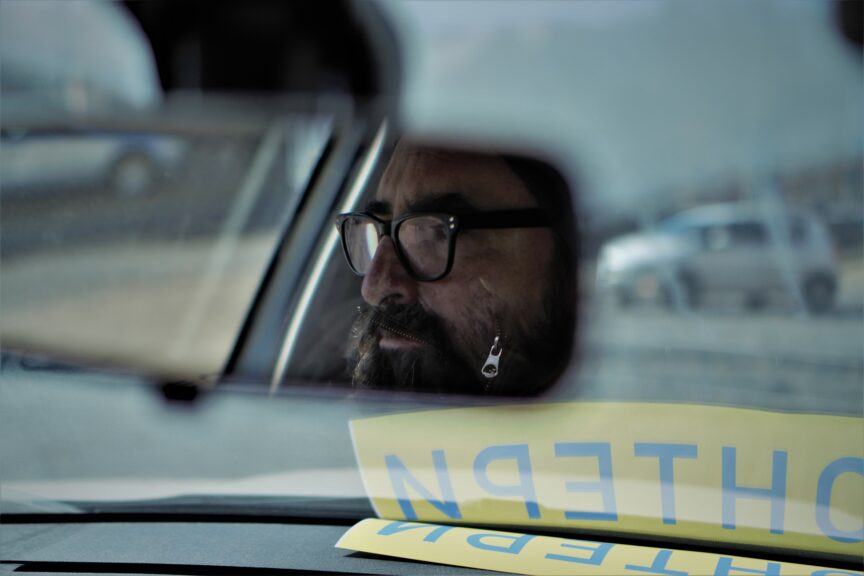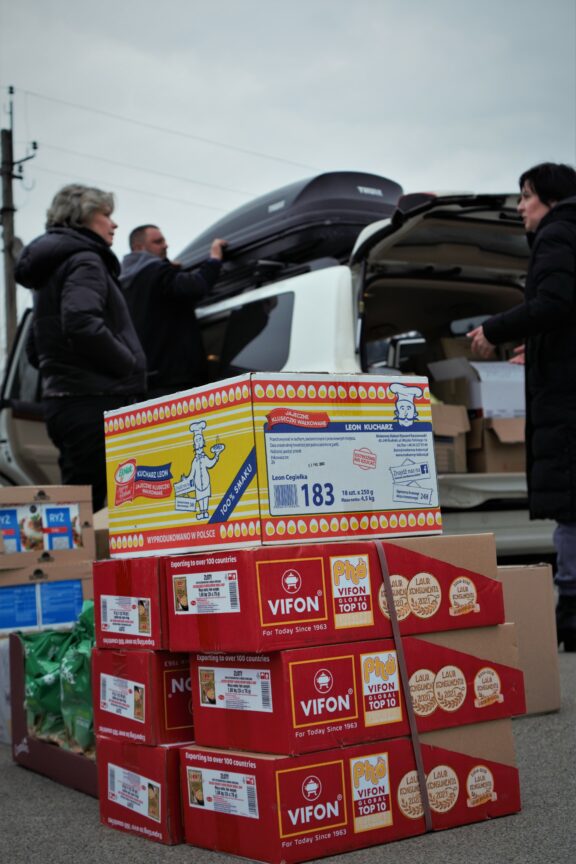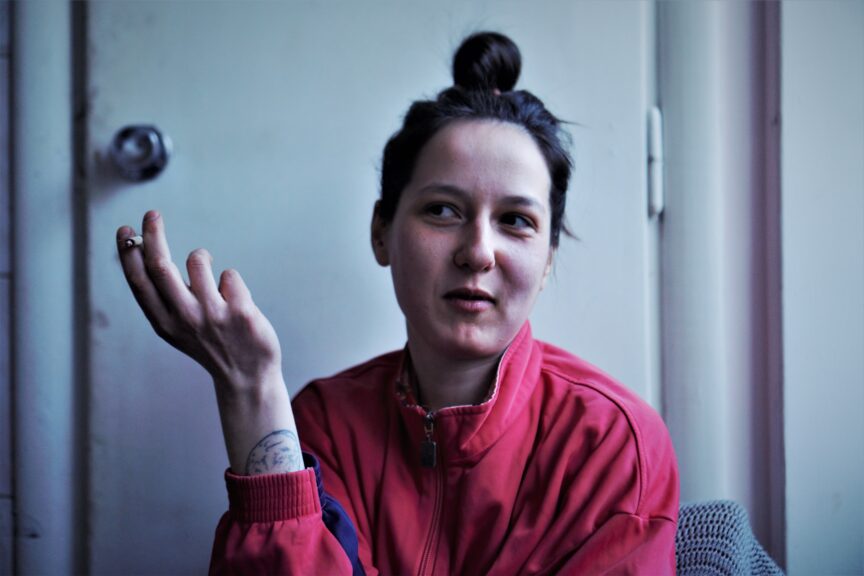Inside the Volunteer Networks Sustaining Ukraine

Before the war, Sergii Sabakar taught at the National Academy of Visual Arts and Architecture in Kyiv. After fleeing the capital, he moved in with his friend Denis Pankratov, a union organiser in Lviv. These days, Sabakar, Pankratov and their flatmates, several of whom are also internal refugees, start their morning by putting on a huge pot of porridge. Once cooked, the pair drive it over to one of Lviv University’s student dormitories, now housing refugees. Wedged behind Sabakar’s windshield is a large yellow sign with blue letters spelling “VOLUNTEERS”. His is far from the only one.
Vladimir Putin’s conviction that there is no such thing as the Ukrainian nation was among the underpinnings of his decision to invade. Ironically, the experience of war is quickly becoming the foundation of a newly unified Ukrainian nationhood. Resistance to the invasion is fierce, not least in those parts of the country where the Russian language dominates and where Putin had expected to be greeted as a liberator. Yet it isn’t only Ukraine’s military efforts that have proven remarkably resilient. Across the country, volunteer initiatives are proliferating to help citizens weather the consequences of the war.

The city of Lviv, like much of the rest of Ukraine, teems with private vehicles of all sizes, transporting humanitarian aid and refugees; some operate in coordination with the authorities or civil society organizations but most are part of spontaneous, ad-hoc networks. “Much of this spirit is a continuation of the self-organisation we saw in 2014,” Sabakar explains as he weaves us through morning traffic, referring to the Ukrainian mass mobilisation that culminated in the Maidan revolution and toppled then-president Viktor Yanukovych eight years ago. Back then, volunteer groups formed across the country in support of the months-long standoff between protestors and riot police in the capital.
In response to the current crisis, leftist organisers are springing into action once more. In Lviv, a number of cooperative-run businesses quickly initiated a network of mutual aid, sharing resources to support the humanitarian effort. “These small ventures, normally dealing in vegan food, sneakers, sex toys and stuff, are now sharing funds, and opening their storage spaces for the benefit of volunteer people’s kitchens like ours,” Pankratov explains while he and Sabakar serve tired refugees their breakfast porridge. A set of thermoses the group uses to transport its meals has been loaned by antifascist animal rights group called Ecological Platform, which before the war used to serve free food to the homeless once a week.
The volunteer effort has drawn in many without previous histories of political activism. At a Polish-Ukrainian border crossing a few hours south of Lviv, a convoy carrying humanitarian donations from Sweden and Poland is unloading its cargo. Lviv-born Diana, now working as a dentist in Poland, says she was never part of any organisation. But when the invasion began, she felt the need to act, and now serves as the link between foreign aid convoys and volunteer networks in Ukraine. “People send us lists of what’s needed, and we try to coordinate the necessary deliveries,” she explains. Once across the border, Ukrainian volunteers then transport the aid to its final destinations. “I’m driving this straight to the Odessa front, where my husband is serving in the military,” a woman with neat makeup and small pearl earrings says as she gets into her car, which is packed to the brim with food and medical supplies.

Aside from the provision of food and the transport of aid, Ukrainian civil society has also been key in providing housing for the internally displaced. According to its chairman Vasyl Andreyev, the construction workers’ union Profbud has put people up in its educational facilities in several Ukrainian cities; the Ukrainian Federation of Trade Unions, of which Profbud is a part, is hosting tens of thousands in its own recreational facilities. More activist collectives in Lviv are also working to find apartments for refugees, while countless households have opened their doors to strangers.
For Alona Liasheva, an urban sociologist at the Center for Eastern European Studies at Bremen University, and who is currently living in Lviv, the collective ethos of solidarity may lastingly reconfigure the country’s politics: “People are experiencing a different way of how to live together, where food, clothing and housing are being provided for free by strangers.”
As Liasheva sees it, Ukrainian society was long characterised by the social atomisation and mutual distrust among citizens seen in many post-Soviet states. The explosion of volunteer networks during the war may have changed that – though what will become of them in the years to come is yet to be een. “Maybe all these networks of solidarity will go on to serve less than progressive goals,” she says. “They may get co-opted by the state, they may disappear again. But something previously unimaginable is happening, where people who were never engaged in activism before [are] now [seeing it as] the norm.”

Liasheva suggests Ukraine is currently undergoing processes similar to those described by French philosopher Alain Badiou in the context of revolution. “Old social structures are being broken, and a space for new ones is created,” she says. “Unfortunately, in our case, it’s not a revolution that has led to this rupture, but the need to defend ourselves. Still, anything can grow out of it.”
To those on the ground, it is often small things that ofer hope. For Yaroslav Futymskyi, an artist, construction worker and member of another humanitarian collective in Lviv, it was a phone call with his father from his hometown in central Ukraine: “He was telling me that locals there who in the initial days of the war had complained about Roma refugees showing up in town ended up taking in a [Syrian] family … that had been displaced from their homes further east. … I’ve never been much of an optimist, but somehow, I am more hopeful now than ever before.”
Volodya Vagner is a freelance journalist based in Sweden, covering culture and politics.


